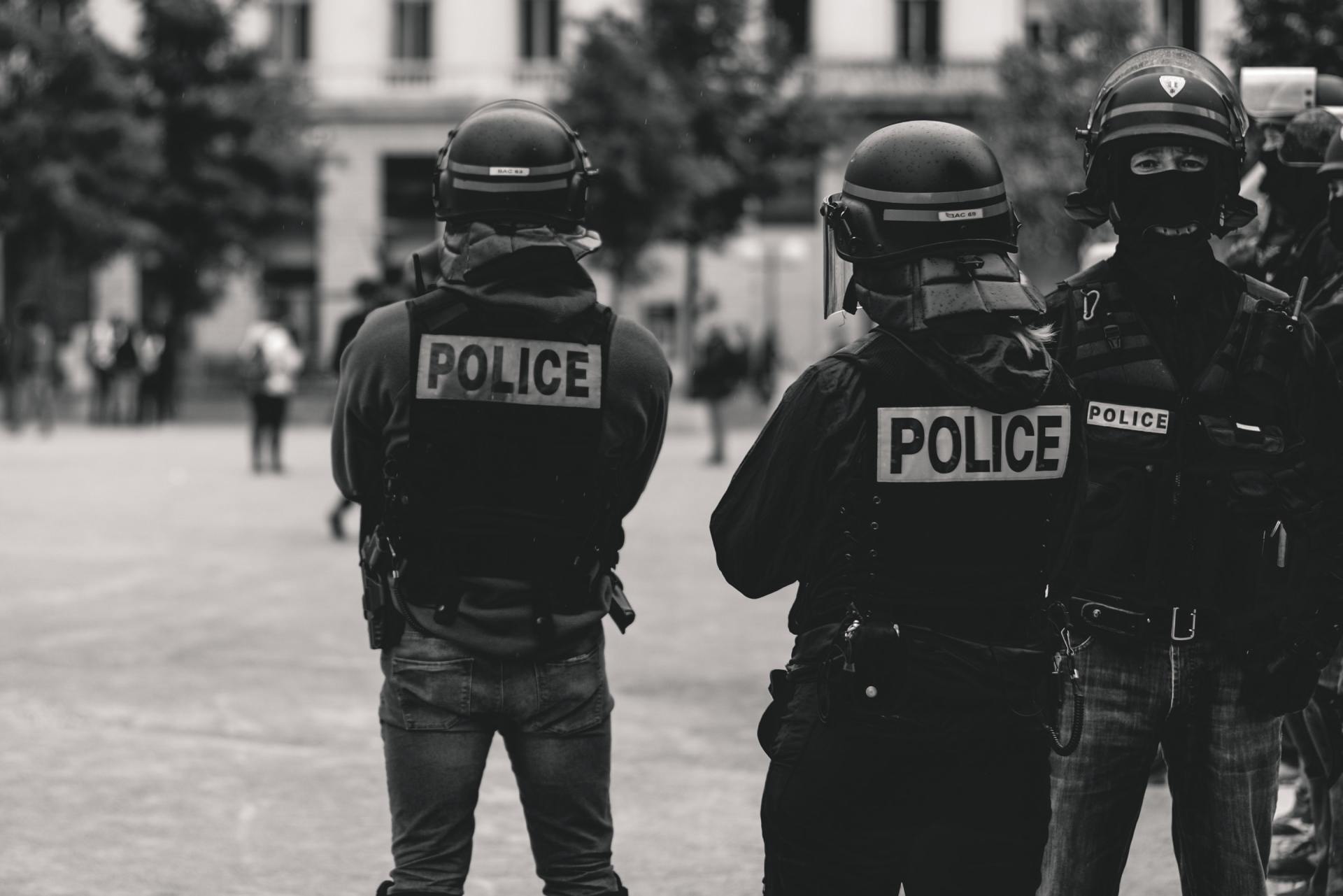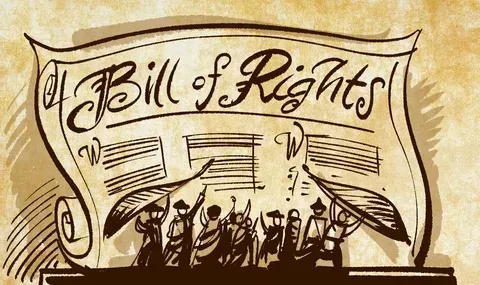WHY DOES IT SEEM LIKE POLICE MISCONDUCT IS INCREASING, AND WHAT ARE WE GOING TO DO ABOUT IT?
Rook Elizabeth Ringer, Esquire • April 4, 2020
To begin, let me state right from the beginning that I do not hate cops. Given my experiences with corrupt cops, one would think I would have developed a pretty stereotypical anti-police attitude. Another stereotype of people who fight against police misconduct is that we are “pro-crime”, have no respect for the law, or something similar. That is also equally absurd. In fact, the reason that I am so passionate about going after police misconduct is because I believe in the law. I am one of the most law-abiding people you will ever meet. (I have a Doctorate in Law, a BS in Forensic Science, and am ex-Army Intelligence.)
In fact, because I have put on a uniform to defend this country in the Army, I have a certain reverence for those who serve in any capacity (law enforcement, fire department, emergency medical, etc.). And it is that reverence that makes me personally offended and disgusted by police misconduct, whether it is unlawful shootings, excessive force, evidence tampering, et cetera, I have personally witnessed these kinds of crimes being swept under the rug by judges, prosecutors, and police administrators.
To that I say: Not on my watch.
For example, one of the first trials I worked on, not all that long ago, involved a woman charged with two misdemeanors: disorderly conduct and resisting arrest without violence. The defendant, a 50-something African-American woman and former Army sergeant, had come to the sheriff’s office to file a complaint about some teenagers harassing her at her apartment complex. The sheriff’s deputies (likely because she had little to identify the perpetrators) declined to file charges, and this upset the defendant. As she stormed out of the sheriff’s office, she said something to the effect of, “You’re all f#$%ing bull$#%!”
One deputy, operating under the misguided assumption that it was against the law to curse at a law enforcement officer or in front of a child (there was a mother and child in the lobby), decided to arrest the defendant. She did not want to be arrested for such a ridiculous and plainly unlawful charge(1), so the deputy swept her legs out from under her and body slammed her. She then spent the next few weeks in the county jail, as she did not have any money for bail or friends or family to bail her out.
Now, throughout the months of preparation for this 2-day trial (you heard it right: a 2-day trial for misdemeanors), the prosecutor’s office and sheriff’s offices both claimed that no security video of that date existed. And on day one of the trial, multiple deputies took the stand and said that (1) she was actually in the lobby screaming and yelling profanities, flailing her arms around, throwing things, and causing all kinds of mayhem for approximately 15-25 minutes before the deputies intervened, and (2) there was no video.
However, things changed when one desk clerk took the stand and, having apparently not gotten the memo to lie to back up her fellow deputies, told the judge she knew exactly where the video of the event was located. The court adjourned so that she could obtain the video. (You can watch the entire video here.) It shows that the defendant calmly walked through the lobby and was out of the sheriff’s office in approximately 7 seconds. Not 5, 15, or 25 minutes... In fact, approximately 2 minutes after walking out of the interview room, she was already body slammed and on the ground.
So the question that is on my mind regarding the trial is: Why did those law enforcement officers perjure themselves just to support a misdemeanor disorderly conduct charge? Unfortunately, the “thin blue line” is often not about protecting the public, but about protecting fellow cops. Those cops who perjured themselves committed a felony...to uphold a misdemeanor conviction.
Think about it. Luckily, the jury was not impressed and found the defendant not guilty on all charges.
In any case, when law enforcement officer puts on that uniform and swears an oath to defend civilians, and uphold the law, we have to hold them to a higher
standard than that of your average criminal. We, the civilians of the United States, have entrusted that person with not only the duty to enforce the laws...but we have given them weapons, body armor, etc., in order to do that job. They have to be held to that higher standard, or society risks collapsing into some kind of dystopian nightmare. Here, cops lied, and someone spent weeks in jail for a “crime” that was not legally even a “crime”. But at least nobody died. That is not always the case.
For example, one night in May of 2010, officers of the Detroit Police Department’s Special Response Team (i.e., a local variant of a “SWAT team”), threw a “flash-bang” grenade into a home while serving a warrant trying to locate a murder suspect. The first problem, however, was that they were at the wrong house. And that is when things were about to get much, much worse.
First, the grenade landed near 7-year old Aiyana Jones, so her grandmother, Mertilla Jones, reached towards her to help her. At that point, a cop shot Aiyana with his MP-5 submachine gun, killing her. As is too often the case, the cop made up various stories about Mertilla grabbing for his gun and other nonsense (disproved by forensics, as her fingerprints were not on the gun), but the elephant in the room is that no civilian should ever be put into a position where, if they are awakened at night by police illegally throwing grenades into their house and busting in the door with submachine guns...they are “responsible” for their own deaths if they make a move that frightens the guy in the body armor carrying the ballistic shield.
These are just two examples of police misconduct, but they are symptomatic of a much larger, and far more pervasive problem. And frankly, it is not that the police misconduct is increasing, at least in my reasoned opinion, but rather...it is that we are starting to believe the victims. Over the last decade, people have begun video-recording police interactions, and those stories that were often disbelieved (by those of us who did not want to think of cops as being capable of criminal behavior) are now being seen in full 1080p HD video. And if you, like me, have spent a good deal of time watching those videos, then you have also seen what I have: a cop shooting an unarmed man in the back as he flees; cops shooting children holding toy guns; a father shot dead in front of his child for reaching to get the driver’s license that the cop had just told him to get... These are not easy things to watch, but we must watch them and learn from them. And frankly, every cop out there needs to watch them and in doing so remember that their oath to uphold the law includes
turning in and arresting the dirty, corrupt cops that commit those vile, reprehensible acts. It is not about “hating cops”. It is about having a moral consistency regarding the law.
In short, there must always be those who watch the watchmen. I would love to live in a society where law enforcement officers were always trustworthy, courageous, and brave...but the only way we will ever get there is by rooting out, punishing, and removing the bad apples that spoil the bunch. Because I once wore the uniform of an American soldier, I have great reverence to the symbolism imparted by the uniforms of those we trust to serve and protect. However, too often cops will put their own safety above that of civilians, like Aiyana Jones. They allow their own fears and lack of courage dictate their actions. However, there is a quote from a TV show from more than two decades ago that has always struck me as embodying the true spirit of how a soldier or a police officer must conduct themselves when dealing with situations where civilians could be hurt. It is from an episode of the show Star Trek: Deep Space Nine, and the character of Captain Sisko is explaining why one of his subordinates should not have fired on a vessel that he thought was a threat, but which turned out to be a civilian vessel. He said:
You made a military decision, to protect your ship and crew. But you're a Starfleet officer, Worf. We don't put civilians at risk or even potentially at risk to save ourselves. Sometimes that means we lose the battle, and sometimes our lives. But if you can't make that choice, then you can't wear that uniform.
(Watch the full scene here)
Now I do not wear a uniform any longer. However, I am still bound to my oath to support and defend the Constitution of the United States against all enemies, foreign, and domestic, and that includes corrupt cops. And if you or a loved one has been damaged by the unlawful actions of those corrupt cops, then I want to help you. The Constitution, and the laws of the United States, do not take “sides” for or against cops. They side with what is just, honorable, and lawful. And if you are on the other side from them, I want to be there to do what is right.
1 It has been well-settled law in Florida since 1976 that you cannot be arrested for “disorderly conduct” on the basis of speech alone, even if you use naughty words, See, State v. Saunders, 339 So.2d 641 (Fla.1976), or even if those naughty words are directed at law enforcement, Fields v. State, 24 So. 3d 646 (Fla. 3d DCA 2009).
More News & Resources

Surely no one would doubt that children are curious creatures, and as such, they often end up in places they don’t belong if they are not well looked after. The curiosity of a child’s mind knows no bounds, and while, as parents, we have come to expect simple “boo-boos” like a scrapped knee for example, sometimes curiosity can lead children into far more precarious situations. Obviously then, there are many situations where, from the worldview of an adult, while we see dangers that should best be avoided, a child may only see adventure – a new mystery waiting to be explored. While, of course, it is important that parents foster their children’s inquisitive minds, a parent’s first priority should surely always be to protect their children from serious bodily injury, or worse. Now that Summer is just around the corner, protecting our children is particularly important as swimming pools will start to be opened up and trampolines will be going back out in the yard. Fortunately, the law recognizes the tendency of children to view all the world as a playground, and imposes a special duty on owners of such things as swimming pools and trampolines to protect children from the hazard these things can represent. Like many states, New Jersey has adopted this principle of tort law, called the attractive nuisance doctrine. Put simply, an attractive nuisance is any man-made construct present upon land, which may lure children, and which can cause them bodily injury should they play on, in, or around it. The defining characteristic of an attractive nuisance is just that – that it is attractive to children and that the potential fun the attractive nuisance poses, entices a child like a moth to the flame. Swimming pools, playground equipment, and other artificial landscaping features can make your yard a magnet for every kid in the neighborhood, but the very things that might make your yard so enticing to a child may also be the very things that make it so potentially dangerous for them. As a result of this potential for harm, the law places a heightened duty on property owners who have items that will both attract children and present a unique potential for harm. The theory is that children are too young to appreciate the risk of harm these attractive nuisances pose, and therefore, because these items essentially induce a child into a hazardous area of your property, the property owner is expected to take special precautions to mitigate the risk of harm, for example, by putting a fence around a pool. Elements of Attractive Nuisance If the property owner knows, or reasonably should know, that children are likely to trespass upon his or her property; In response to an artificial condition present upon the land; Which the property owner knows, or reasonably should know poses an unreasonable risk of death or serious bodily injury; Such that a child, because of their youth, does not discover the condition or realize the risk involved; and Said property owner fails to take reasonable precautions to safeguard against the risk of injury. Common Attract Nuisances Water Features Studies suggest that an adult can drown from as little as six tablespoons of water. This number is even smaller for a child. Water features on property – including fountains, pools, and wells – can pose an enormous risk of drowning to children who may want to splash around inside, particularly if they cannot gauge how deep the water is, and especially if they have not yet learned to swim. A swimming pool is the most common example of an attractive nuisance, and as the summer weather soon comes upon us, pool owners – especially owners of inground pools – should be particularly mindful of the hazard posed by the attractive nuisance. As a pool owner, you could be liable for accidents even if children sneak into your pool without your consent. Whether the pool is in-ground, above ground, or even a kiddie pool, you can reduce your risk by surrounding your pool area with a fence, installing a locking gate (preferably one with an audible alarm), and covering the pool with a safety cover when not in use. New Jersey has passed legislation specifically outlined the heightened obligation of pool owners. Under New Jersey’s swimming pool safety act, called “William’s Law,” any pool must be fenced or walled in with a structure of at least 5 feet high and without any openings wide enough for a 4-inch object to pass through it. If a pool owner fails to properly enclose the water feature and a child is injured as a result, the child’s family may be able to sue under the attractive nuisance doctrine, as well as raise a negligence per se claim in connection with the pool owner’s violation of William’s Law. Trampolines & Playground Equipment Most home playground injuries involve swing sets, according to the Centers for Disease Control (CDC). To reduce the chance of accidents, therefore, the National Association of Home Inspectors recommends spacing swings at least 24 inches apart and at least 30 inches from the support frame. Swing sets – especially wooden ones – should be checked regularly for wear & tear, warping, or rot. Because most injuries from swings also involve falls, installing a shock-absorbing surface for your playground like sand, wood chips, or gravel, for example, can help mitigate the likelihood of injury. Trampolines can also pose a significant safety hazard to young children who may not know how to utilize one safely. If you are planning on purchasing a trampoline, look for a model that has a zippered entrance which can be locked. Additionally, consider installing a locked and alarmed fence around your yard or around the playground to make the feature inaccessible to uninvited users. Home Construction Projects Construction projects and the tools and equipment which may be present on a construction site can be kid magnets. Young children often get toy tool sets to play with, so seeing a real hammer or saw can be enticing. Rebuilding a deck, repaving a driveway, pouring concrete, building additions, and even repairing a roof can all present potentially dangerous conditions which a child may be drawn to. To some children, a ladder must be climbed or a hole must be jumped in. The law doesn’t expect homeowners to complete their construction projects overnight, but when stepping away, it is critical to turn off and put away power tools, remove heavy equipment if possible, and consider putting up hazard signs, safety cones, or even a barrier of caution tape to make the potential danger clearly evident. Our Tip: Be Alert to Hazards At the end of the day, even with due care it is impossible to prevent all eventualities, especially when children are involved, and unfortunately accidents do happen. At the same time, it is also important to be vigilant and to stay aware of hazardous or potentially hazardous conditions on our property which children may be drawn to. This is especially true if you live in a neighborhood with families who have children or near an area where children may be present, such as near a park or a school. Call The Lento Law Group If your child was the victim of an attractive nuisance or was otherwise injured on another person’s property, call the Lento Law Group today for a free phone consultation. Our caring, compassionate, and knowable staff will be happy to go over the facts of your potential case so that our experienced personal injury attorneys can see if you have a viable cause of action. There is absolutely no cost to you unless we secure a financial recovery on your behalf. Call today!











